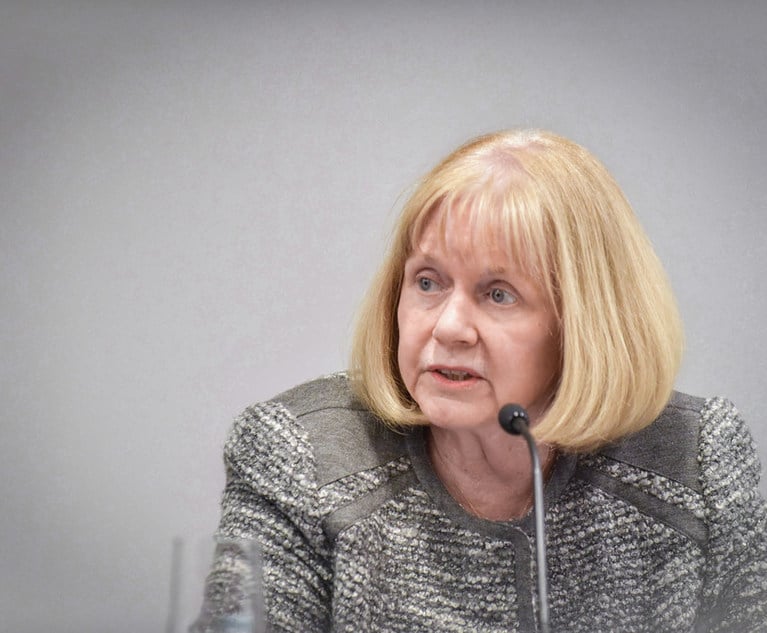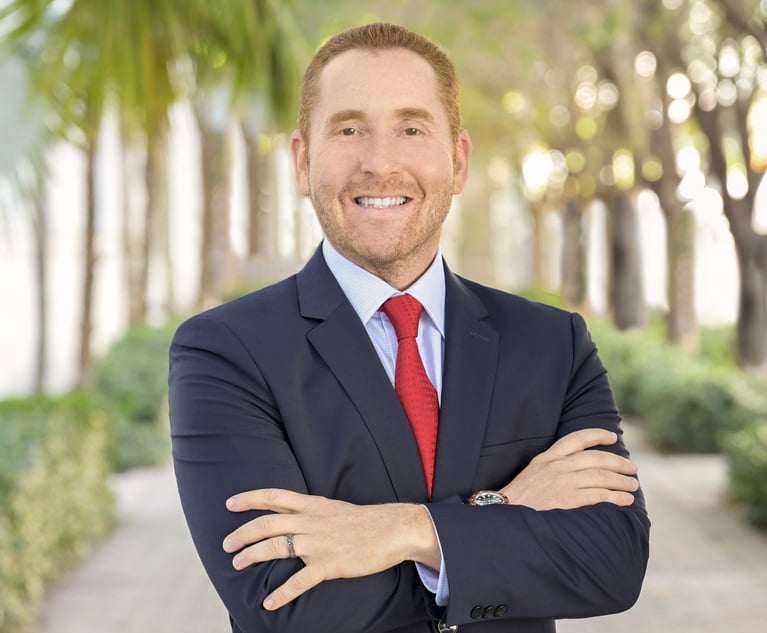 Credit: liliya/Adobe Stock
Credit: liliya/Adobe Stock ESG's 'Social License' Will Endure Even If the Letters Don't
The nebulous nature of ESG is clearly illustrated by the lack of agreement on its meaning.
August 10, 2022 at 01:15 PM
4 minute read
It's been a bumpy stretch for adherents of investment strategies based on environmental, social and governance data.
Much has been written about how Vladimir Putin's February invasion of Ukraine raised geopolitical questions about why ESG-focused funds were even invested in Russia. Then markets tanked, with many huge ESG funds getting slammed for posting losses worse than those suffered by benchmarks, thanks to their massive holdings in beat-up tech stocks.
In a new paper titled "Does ESG Really Matter—and Why," consultants from McKinsey & Co. run through the many reasons why ESG has attracted such intense criticism of late. But they ultimately conclude that, regardless of the current turbulence surrounding its specific components, ESG's underpinnings and the "social license" adherence to them will remain important for companies far into the future.
Detractors complain ESG is often just public-relations cover rather than true corporate belief, where greenwashing is employed to profit off of unwitting environmentally and socially conscious investors. The concept itself is also seen as an odd bird, a weird combination of ill-defined elements whose focus should mainly be on environmental sustainability.
The nebulous nature of ESG is clearly illustrated by the lack of agreement on its meaning. For example, while credit ratings from Standard & Poor's and Moody's Investors Service are in sync about 99% of the time, ESG scores from six of the most prominent ESG ratings providers are found to be comparable closer to 54% of the time, according to a paper cited by McKinsey. And even when ESG can be measured appropriately, there's often no meaningful relationship with a company's financial performance. (Bloomberg LP, the parent of Bloomberg News, also provides ESG data, analysis, indices and scores.)
But even with its inherent problems, what ESG represents at its base is critical to modern corporate decision-making, McKinsey says.
"While acronyms will come and go, the substance of what matters long term to companies and their stakeholders won't change," said Hamid Samandari, a senior partner at McKinsey who was part of five-person group that co-authored the article.
Companies are increasingly going to be under pressure to ensure they can "build purpose into their business models in a sustainable way and respond to their stakeholders' growing focus on the impact of the company's actions on the environment and society," added Lucy Pérez, who's also a senior partner and co-author.
The group examined the question of whether companies that show an improvement in ESG ratings over several years exhibit higher shareholder returns, as has been claimed by proponents. While they find some early indications of a correlation, they contend that the numbers are inconclusive.
McKinsey instead says the main reason for a company to focus on ESG is to maintain and enhance its so-called social license. Regardless of the current debate, many companies are advancing on the sustainability front to improve their long-term financial performance. More than 5,000 companies, for example, have made net-zero commitments as part of the United Nations' "Race to Zero" campaign, and most businesses are being forced to adapt to the climate crisis. Moreover, some 90% or more of companies in the S&P 500 now publish ESG reports.
For the best outcome, companies should focus on ESG improvements that are informed by and support the evolution of their business models, even if the improvements don't directly lead to higher ratings, the McKinsey authors wrote.
And there are tangible risks for companies that don't take action.
"If companies, particularly those with significant externalities, such as high-emitting industries, hold out for perfect data and a 'flawless' rating process, they may not have a business in 20 to 30 years," they warned.
Tim Quinson reports for Bloomberg News.
NOT FOR REPRINT
© 2025 ALM Global, LLC, All Rights Reserved. Request academic re-use from www.copyright.com. All other uses, submit a request to [email protected]. For more information visit Asset & Logo Licensing.
You Might Like
View All
Disney's Black Eye Over Arbitration Gambit Likely to Linger, Underscoring PR Risks of Spurning Courts


Trump Organization's Independent Monitor Recommends Continued Oversight
Law Firms Mentioned
Trending Stories
Who Got The Work
Michael G. Bongiorno, Andrew Scott Dulberg and Elizabeth E. Driscoll from Wilmer Cutler Pickering Hale and Dorr have stepped in to represent Symbotic Inc., an A.I.-enabled technology platform that focuses on increasing supply chain efficiency, and other defendants in a pending shareholder derivative lawsuit. The case, filed Oct. 2 in Massachusetts District Court by the Brown Law Firm on behalf of Stephen Austen, accuses certain officers and directors of misleading investors in regard to Symbotic's potential for margin growth by failing to disclose that the company was not equipped to timely deploy its systems or manage expenses through project delays. The case, assigned to U.S. District Judge Nathaniel M. Gorton, is 1:24-cv-12522, Austen v. Cohen et al.
Who Got The Work
Edmund Polubinski and Marie Killmond of Davis Polk & Wardwell have entered appearances for data platform software development company MongoDB and other defendants in a pending shareholder derivative lawsuit. The action, filed Oct. 7 in New York Southern District Court by the Brown Law Firm, accuses the company's directors and/or officers of falsely expressing confidence in the company’s restructuring of its sales incentive plan and downplaying the severity of decreases in its upfront commitments. The case is 1:24-cv-07594, Roy v. Ittycheria et al.
Who Got The Work
Amy O. Bruchs and Kurt F. Ellison of Michael Best & Friedrich have entered appearances for Epic Systems Corp. in a pending employment discrimination lawsuit. The suit was filed Sept. 7 in Wisconsin Western District Court by Levine Eisberner LLC and Siri & Glimstad on behalf of a project manager who claims that he was wrongfully terminated after applying for a religious exemption to the defendant's COVID-19 vaccine mandate. The case, assigned to U.S. Magistrate Judge Anita Marie Boor, is 3:24-cv-00630, Secker, Nathan v. Epic Systems Corporation.
Who Got The Work
David X. Sullivan, Thomas J. Finn and Gregory A. Hall from McCarter & English have entered appearances for Sunrun Installation Services in a pending civil rights lawsuit. The complaint was filed Sept. 4 in Connecticut District Court by attorney Robert M. Berke on behalf of former employee George Edward Steins, who was arrested and charged with employing an unregistered home improvement salesperson. The complaint alleges that had Sunrun informed the Connecticut Department of Consumer Protection that the plaintiff's employment had ended in 2017 and that he no longer held Sunrun's home improvement contractor license, he would not have been hit with charges, which were dismissed in May 2024. The case, assigned to U.S. District Judge Jeffrey A. Meyer, is 3:24-cv-01423, Steins v. Sunrun, Inc. et al.
Who Got The Work
Greenberg Traurig shareholder Joshua L. Raskin has entered an appearance for boohoo.com UK Ltd. in a pending patent infringement lawsuit. The suit, filed Sept. 3 in Texas Eastern District Court by Rozier Hardt McDonough on behalf of Alto Dynamics, asserts five patents related to an online shopping platform. The case, assigned to U.S. District Judge Rodney Gilstrap, is 2:24-cv-00719, Alto Dynamics, LLC v. boohoo.com UK Limited.
Featured Firms
Law Offices of Gary Martin Hays & Associates, P.C.
(470) 294-1674
Law Offices of Mark E. Salomone
(857) 444-6468
Smith & Hassler
(713) 739-1250







